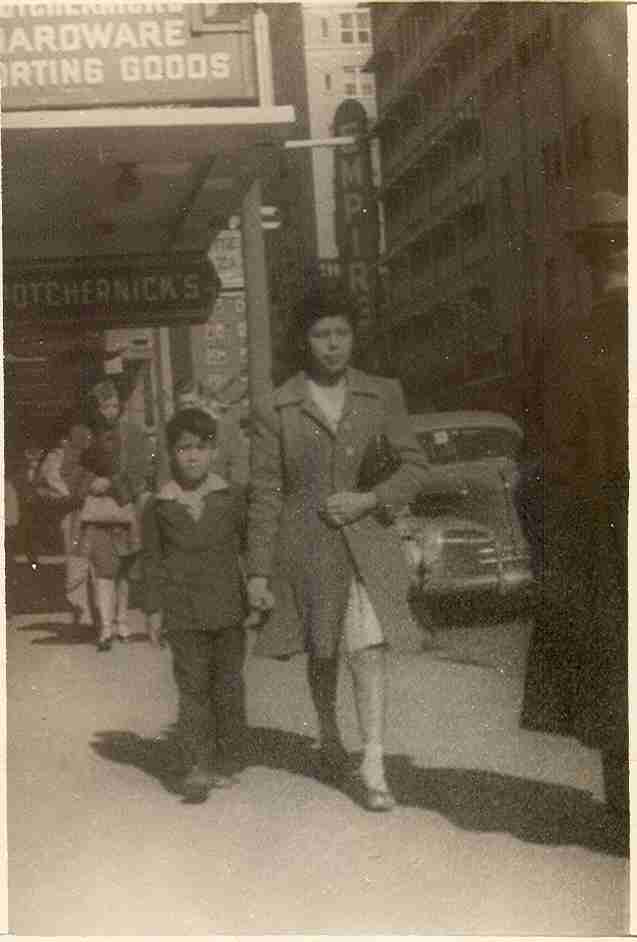Lydia Maldonado (nee Cruz)


Was San Antonio a good place to receive human resources?
Yes, because it was a big city that provided benefits when my dad went to the war. We
received a check every month for $500. With that check we would buy food
and pay our bills.
What store did you buy groceries from?
We bought our groceries from a place called Don Juan Mauricio.
It was a small family store. It had everything you needed food and clothing.
Where would you go for health care?
Robert B. Green was on Leona street and was our hospital. We would
have to wait there a long time before we were seen by a doctor.
During the depression did any other family members help you out finacially?
Yes, if we needed money they would lend it to us, and when my father had money
he would pay them back.
What jobs were available to women during the depression?
Well, women were able to shell pecans too, but I worked as a laundry
presser.
Where did youll live during the Depression?
I lived on 1116 Torreon Avenue in a house which we payed $5 a month to rent.
We never owned a house. We only rented.
What transportation did you have?
Everywhere we went, we took the
bus. My dad use to take the bus
to and from work.

How did you communicate with distant relatives?
We never called them, we always wrote letters.
What were the primary foods at your home?
All we had were ice boxes. We didn't have a refrigerator. We had beans,
rice, milk, and butter in there.
WHat were some of the things you enjoyed doing?
I enjoyed going out and dancing. I also liked to go to the movies.

What was your favorite restaurant?
It was Juan Vidales Restaurante. They had hamburgers, hot dogs, chili, menudo,and
caldo. I liked the enchiladas the most.
What significant historic event do you remember?
I remember when they bombed Japan. It was in 1940. We were all scared, and
did not know what was going to happen to us.
Was the United States at war during this time?
No, there was no war until my dad was drafted to World War II. He was
drafted in 1940 and was there for two years. My mom took care of us while he was
away.
What president was in office during this time?
Roosevelt was president during this time.
Do you think that people were prejudiced to Mexican Americans?
?No, the white's didn't tell the Mexicans anything.
They only told the blacks things because their skin was darker. When we would take
the bus, the white's and Mexican's were in front and the blacks stayed in the back.

Did education play a big role in your life?
I dont think so because noone really cared, you can drop out
at any age.
Who were your role models?
I wanted to be like Dolores del Rio. She was a Mexican movie star. She
made movies in Mexico City. I use to write to her and she would write me back and
send me pictures. I only wrote to her two or three times though.
If you had the power to change anything in your life what would it be?
Working, I liked to work, and make money. Those days are gone because I'm old.
If you could change something in the world what would it be? and why?
I would like everbody to have freedom, and not be prisioners, and keep
going on with their lives. They should let anybody who wants to work, to have
that opportunity to do so.

Pecan Shellers. 2003 New Deal Network. The New Deal Network was developed as a research and teaching resource for students and educators. This is where my grandmother's father worked at shelling pecans in San Antonio, Texas in the 1930's.
Dolores Del Rio.The home of movie cigarette cards in cyberspace of the Franklyn Cards site. This is a Mexican moviestar that my grandmother enjoyed watching, in San Antonio, Texas.